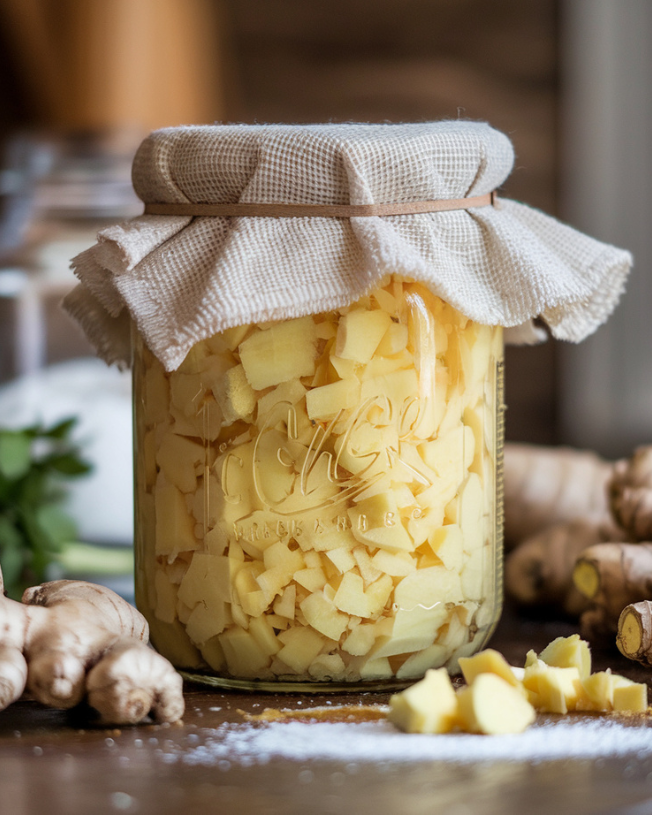Tepache is a traditional Mexican drink made from fermented pineapple, a refreshing and mildly sweet beverage that has been cherished for generations. While it offers a unique flavor profile and potential health benefits, the question remains: Can tepache be safely served to children? In this article, we’ll explore what tepache is, its fermentation process, health benefits, potential concerns, and tips for serving it safely to children. Let’s dive into all you need to know as a parent considering tepache for your family.
What is Tepache?
Tepache is a lightly fermented beverage primarily made from pineapple peels, water, brown sugar (or piloncillo), and spices such as cinnamon. Originating in Mexico, tepache undergoes a short fermentation period, typically one to three days, resulting in a drink that is mildly effervescent, low in alcohol, and packed with beneficial probiotics. These natural fermentation processes create a drink that is both flavorful and good for gut health.
Is There Alcohol in Tepache?
The fermentation process for tepache does produce a small amount of alcohol; however, it is typically minimal, usually around 0.5-2% alcohol by volume (ABV), depending on the length of fermentation and storage conditions. For comparison, most kombucha brands contain about the same amount of alcohol, making tepache a fairly low-alcohol beverage.
For parents, it’s essential to consider that although tepache has a low alcohol content, it’s still technically present. The decision of whether this is suitable for your child will depend on your comfort level with the low ABV and your child’s age. Generally, for young children or toddlers, it may be best to avoid fermented drinks with any alcohol content, but for older children, tepache can be a refreshing treat when enjoyed in moderation.
Health Benefits of Tepache for Kids
If you’re thinking of offering your child a sip of tepache, it’s worth understanding its potential health benefits. Some of the notable benefits include:
- Probiotics: Like many fermented foods, tepache contains beneficial bacteria that can support gut health. For kids, probiotics can help with digestion, immunity, and even mood regulation.
- Vitamins and Minerals: Pineapple is a rich source of vitamins C and B6, as well as manganese, which supports bone health and energy production.
- Antioxidants: The natural ingredients in tepache, especially if you add spices like cinnamon, provide antioxidants that can help reduce inflammation and protect against illness.
Is Tepache Safe for Children?
The safety of serving tepache to children depends on a few factors, including their age, any food sensitivities, and your level of comfort with fermented drinks. Here are a few points to consider:
- Low Alcohol Content: Though the alcohol content in tepache is minimal, it may not be suitable for very young children. Many parents opt to serve tepache to older children only, ensuring it is in small amounts.
- Probiotics and Digestion: The probiotic content in tepache can benefit gut health but may lead to mild digestive issues if your child’s system is sensitive to fermented foods.
- Homemade vs. Store-Bought: Store-bought tepache is often pasteurized, which removes the live probiotics but also eliminates any alcohol content. This may be a safer option for young children if you want them to enjoy the flavor of tepache without any fermentation concerns.
Tips for Serving Tepache to Children
If you decide to introduce tepache to your child, here are some tips to make it a safe and enjoyable experience:
- Dilute the Tepache: If you’re concerned about the alcohol content or the strength of the flavor, try diluting tepache with water or mixing it with a favorite juice. This reduces both the flavor intensity and any minor alcohol content.
- Serve in Small Quantities: Start with a small amount and see how your child responds. Watch for any signs of digestive discomfort or sensitivity to the flavor.
- Shorten the Fermentation Time: If you’re making tepache at home, fermenting it for a shorter period will minimize alcohol production. A 24-hour fermentation can provide the flavors without significant fermentation.
- Add Ice or Sparkling Water: Making it a refreshing, diluted drink with ice or adding a splash of sparkling water can make tepache more palatable for children.
Frequently Asked Questions
1. Can I give tepache to a toddler?
For very young children, especially toddlers, it may be best to avoid tepache, given its low alcohol content and live probiotics. However, diluted, non-fermented pineapple drinks can be a safer option that still gives them a taste of this traditional beverage.
2. Is store-bought tepache better for kids?
Store-bought tepache is often pasteurized, meaning it lacks the live probiotics but also contains no alcohol. If your goal is to introduce the taste of tepache to your child without any fermentation-related concerns, a pasteurized option can be a safer choice.
3. How long does homemade tepache last?
Homemade tepache can last up to one week when stored in the refrigerator. If you’re serving it to children, keep it fresh and limit the fermentation time to control the alcohol content.
4. Can tepache help with digestion in children?
Tepache’s probiotics can support digestion, but for children, introduce any probiotic-rich foods gradually. If they tolerate it well, small servings of tepache could potentially support their digestive health.
5. Is there a way to remove all alcohol from tepache?
Once fermentation begins, a small amount of alcohol will naturally be produced. However, by fermenting it briefly and diluting it before serving, you can reduce its presence to a very minimal amount.
Final Thoughts: Should You Serve Tepache to Children?
Deciding whether to serve tepache to children ultimately depends on your family’s preferences, your comfort level with fermented foods, and your child’s age. For older children who enjoy trying new flavors, tepache can be a fun and beneficial treat, especially when served in moderation and appropriately diluted. By understanding how tepache is made, what it contains, and its potential benefits, you can make an informed choice that’s best for your family.
With these insights, you’re now ready to decide if tepache is a suitable addition to your child’s diet. Remember, every family is different, and what works for one may not work for another—so enjoy exploring the world of fermented foods with care and curiosity!









